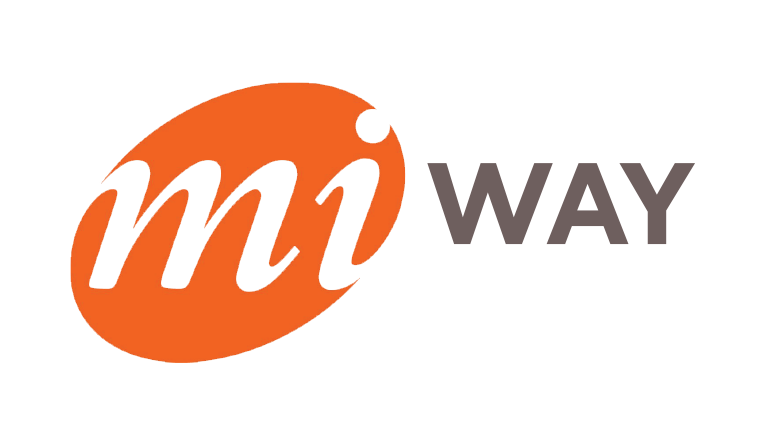How Mississauga’s MiWay Transformed Employee Engagement and Transit Operations
The City of Mississauga, located in the Greater Toronto Area, is a thriving urban center known for its diverse population and growing infrastructure. As the city continues to expand, its public transit system plays a critical
role in supporting the daily commutes of residents and connecting neighboring regions. To maintain high public transit service standards and foster a culture of continuous improvement, Mississauga’s transit agency, MiWay, sought a more efficient way to capture and implement innovative ideas from its employees, moving beyond the outdated carbon form process they had been using.
Challenge
MiWay faced significant challenges in terms of employee engagement and feedback processes. The transit agency lacked a formal mechanism for staff to provide feedback and suggest improvements This gap affected all levels of the organization, from bus operators and mechanics to call center employees.
This gap affected all levels of the organization, from bus operators and mechanics to call center employees. The only way for staff to communicate issues or suggest changes, such as adjusting route timings or reporting maintenance needs, was through a cumbersome and outdated system: three-part carbon forms. This paper-based process not only slowed down the feedback loop but also hindered the ability to make timely and effective changes while working on the road or in other functions.
Solution
Recognizing the need for a more efficient and inclusive system, MiWay launched a pilot program with scheduling, route-planning, and infrastructure campaigns in 2018 to replace the outdated carbon forms with a modern, digital solution called MiWay. Designed to handle a broader range of issues and foster greater engagement across the organization, MiWay provided a comprehensive and flexible platform that enabled the city to create multiple campaigns tailored to various departments and operational needs. The success of the pilot program, which focused on on-road service, laid the groundwork for the expansion of the initiative, leading to the addition of four more campaigns targeting specific areas such as customer service, business technologies, operations, and maintenance. The MiIdea program, through IdeaScale, enabled the city to group and implement ideas by topic, allowing for more efficient management and execution. One of the standout campaigns is within the operations department, which saw significant improvements thanks to the program. Operations issues that previously lingered without resolution were now being tracked and addressed more efficiently, leading to tangible benefits in service delivery.
Since the implementation of IdeaScale, MiWay has seen exponential growth in employee participation. From an initial 250 ideas from the pilot program, the platform has now accumulated over 1,600 ideas, demonstrating the program’s short- and long-term ability to engage employees and capture valuable insights. The key to MiIdea’s success is the support from senior leadership, both financially and organizationally, which ensured that the innovation initiatives were prioritized and sustained. Being able to access the platform on the go also played a crucial role, making it easier for operators—who often have limited access to desktop computers—to submit their ideas. Whether through their phones or on kiosks located at their lounges, employees could quickly and conveniently contribute to the ongoing innovation efforts, significantly enhancing the overall effectiveness of the program.
Results
The implementation of IdeaScale in Mississauga’s transit system led to remarkable improvements in both employee engagement and operational efficiency. By establishing a structured idea implementation process, the city was able to ensure a high level of accountability at every stage of the funnel.
With Service Level Agreements (SLAs) in place, moderators were required to respond to submissions within 10 days. Other stages in the funnel also have SLAs, and if an idea is not responded to within the timeline, the idea is flagged in an overdue report generated weekly in Tableau. This system created a clear process for tracking ideas, which has proven to be highly effective.
MiIdea has seen a dramatic increase in idea submissions, growing from just 250 ideas initially to managing over 1,600 ideas today. Of these, about 400 ideas from the past year are currently in various stages of implementation. This exponential growth underscores the significant rise in engagement across MiWay, reflecting the success of the platform in fostering a culture of innovation.
One particularly impactful outcome was the improvement of signage and wayfinding at MiWay’s Transitwaystations- a major line corridor- and the major transit hub, the City Centre Terminal. This project, which began as a suggestion from multiple bus operators, resulted in a multi-million dollar initiative to overhaul the TransitWay and City Centre terminal’s transit signage and digital applications. The project included input from an architectural engineering firm and involved comprehensive studies and data analysis to create an effective and customer-friendly solution. The upcoming implementation of these recommendations is expected to be transformative, addressing long-standing issues with customer navigation and enhancing the overall transit experience.
Conclusion
The City of Mississauga’s implementation of IdeaScale has proven to be a powerful tool for driving innovation and improving transit operations. By creating a structured process for idea submission and accountability, MiWay not only increased employee engagement but also made significant strides in operational efficiency and providing a better service. As MiWay and the City of Mississauga continues to evolve and expand its use of IdeaScale, MiWay is well-positioned to meet the growing demands of its transit system and provide a better experience for both employees and customers.


